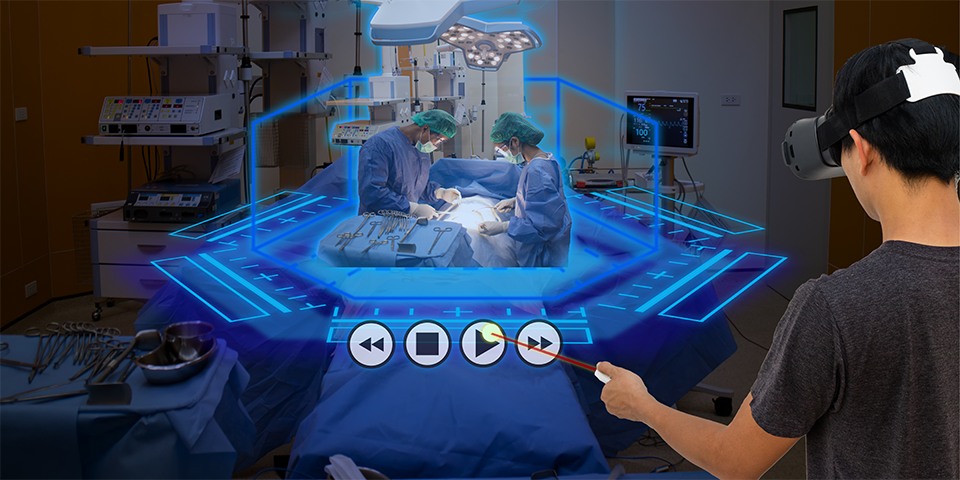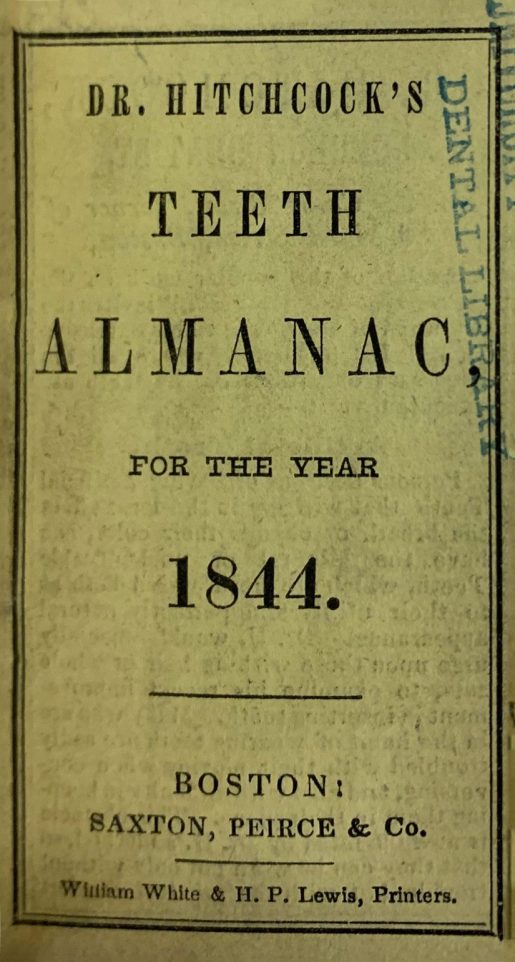I am pleased to announce the appointments of three Assistant Directors for HSLS, as part of our new leadership structure. This structure creates new opportunities to advance traditional library services, while expanding in others, such as incorporating inclusive, diverse, and accessible resources; offering expertise to guide research to publication; integrating emerging technologies into online instruction; and increasing interprofessional education activities across the health sciences.
 Julia Dahm has been appointed Assistant Director for Technology Integration and Fulfillment Services. Julia began her career as Technology Services Librarian in 2010. Since 2018, Julia has served as Coordinator for Technology Integration Services, where she has led efforts to support the unique technology needs of library staff and patrons, and has implemented education to support new technologies. She is an active member of Pitt’s Information Technology Advisory Committee and the Board of Trustees Institutional Advancement Committee. As Assistant Director, Julia will lead the library’s technology-based services and resources, including management of the HSLS main desk and technology help desk, technology education, virtual reality, media creation, digital marketing, and multimodal technology accessibility across HSLS collections, resources, and services.
Julia Dahm has been appointed Assistant Director for Technology Integration and Fulfillment Services. Julia began her career as Technology Services Librarian in 2010. Since 2018, Julia has served as Coordinator for Technology Integration Services, where she has led efforts to support the unique technology needs of library staff and patrons, and has implemented education to support new technologies. She is an active member of Pitt’s Information Technology Advisory Committee and the Board of Trustees Institutional Advancement Committee. As Assistant Director, Julia will lead the library’s technology-based services and resources, including management of the HSLS main desk and technology help desk, technology education, virtual reality, media creation, digital marketing, and multimodal technology accessibility across HSLS collections, resources, and services.
 Melissa Ratajeski has been appointed Assistant Director for Data and Publishing Services. Melissa has been at HSLS since 2006, starting as a Research and Instruction Librarian. Melissa is also liaison librarian to the IACUC. Since 2016, she has served as Coordinator for Data Services, making notable contributions in leading the development and implementation of services supporting faculty, students, and staff throughout the research data life cycle; coordinating a team of faculty librarians to design and implement data services for the University’s health sciences community; and overseeing the library’s data catalog project. She is an active member of the Data Discovery Collaboration Project and offers representation on University data management and policy committees. As Assistant Director, Melissa will lead the library in expanding and implementing effective, user-centered services supporting research sharing and publishing, data management, open science, and research impact and metrics.
Melissa Ratajeski has been appointed Assistant Director for Data and Publishing Services. Melissa has been at HSLS since 2006, starting as a Research and Instruction Librarian. Melissa is also liaison librarian to the IACUC. Since 2016, she has served as Coordinator for Data Services, making notable contributions in leading the development and implementation of services supporting faculty, students, and staff throughout the research data life cycle; coordinating a team of faculty librarians to design and implement data services for the University’s health sciences community; and overseeing the library’s data catalog project. She is an active member of the Data Discovery Collaboration Project and offers representation on University data management and policy committees. As Assistant Director, Melissa will lead the library in expanding and implementing effective, user-centered services supporting research sharing and publishing, data management, open science, and research impact and metrics.
 Rose Turner has been appointed Assistant Director for Liaison Services and Instruction. Rose began her career as a Research and Instruction Librarian at HSLS in 2014. She is liaison librarian to the School of Health and Rehabilitation Sciences (SHRS), where she is integrated into research activities and the curriculum, and is co-author on numerous peer-reviewed research publications. Since 2018, Rose has served as Coordinator for Liaison Services, where she has aligned efforts of the liaison librarians to the schools of the health sciences, and developed optimal approaches for integrating research support, instruction, and scholarship activities for students, faculty, and staff. As Assistant Director, Rose will continue liaison responsibilities to SHRS while leading the library’s liaison and instruction programs, developing user-centered services, and incorporating emerging, instructional technologies and best practices into in-house and curricular instruction.
Rose Turner has been appointed Assistant Director for Liaison Services and Instruction. Rose began her career as a Research and Instruction Librarian at HSLS in 2014. She is liaison librarian to the School of Health and Rehabilitation Sciences (SHRS), where she is integrated into research activities and the curriculum, and is co-author on numerous peer-reviewed research publications. Since 2018, Rose has served as Coordinator for Liaison Services, where she has aligned efforts of the liaison librarians to the schools of the health sciences, and developed optimal approaches for integrating research support, instruction, and scholarship activities for students, faculty, and staff. As Assistant Director, Rose will continue liaison responsibilities to SHRS while leading the library’s liaison and instruction programs, developing user-centered services, and incorporating emerging, instructional technologies and best practices into in-house and curricular instruction.
Continue reading →







 Today, the almanac is no longer the important and popular resource it once was in most households. It appeared in America at the end of the 17th century and its popularity was second only to the Bible. Almanacs offered lists of current events, advice, and weather prognostics tailored to a specific audience, such as that of the Farmer’s Almanac, and served as a basic home reference, especially for those in isolated households, helping to keep track of passing time. Dr. David Keyes Hitchcock started publishing almanacs annually around 1839, which happened years before printed calendars were invented (1870), and before there were any standards (1883)* by which to set clocks and watches.
Today, the almanac is no longer the important and popular resource it once was in most households. It appeared in America at the end of the 17th century and its popularity was second only to the Bible. Almanacs offered lists of current events, advice, and weather prognostics tailored to a specific audience, such as that of the Farmer’s Almanac, and served as a basic home reference, especially for those in isolated households, helping to keep track of passing time. Dr. David Keyes Hitchcock started publishing almanacs annually around 1839, which happened years before printed calendars were invented (1870), and before there were any standards (1883)* by which to set clocks and watches.